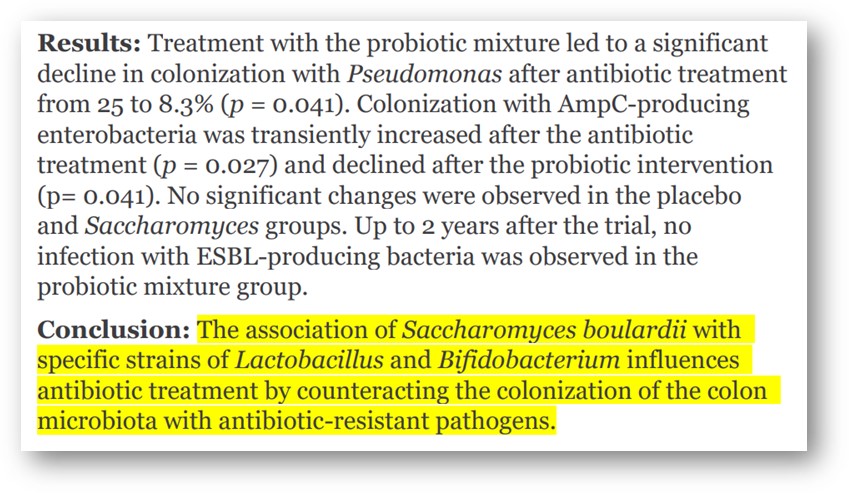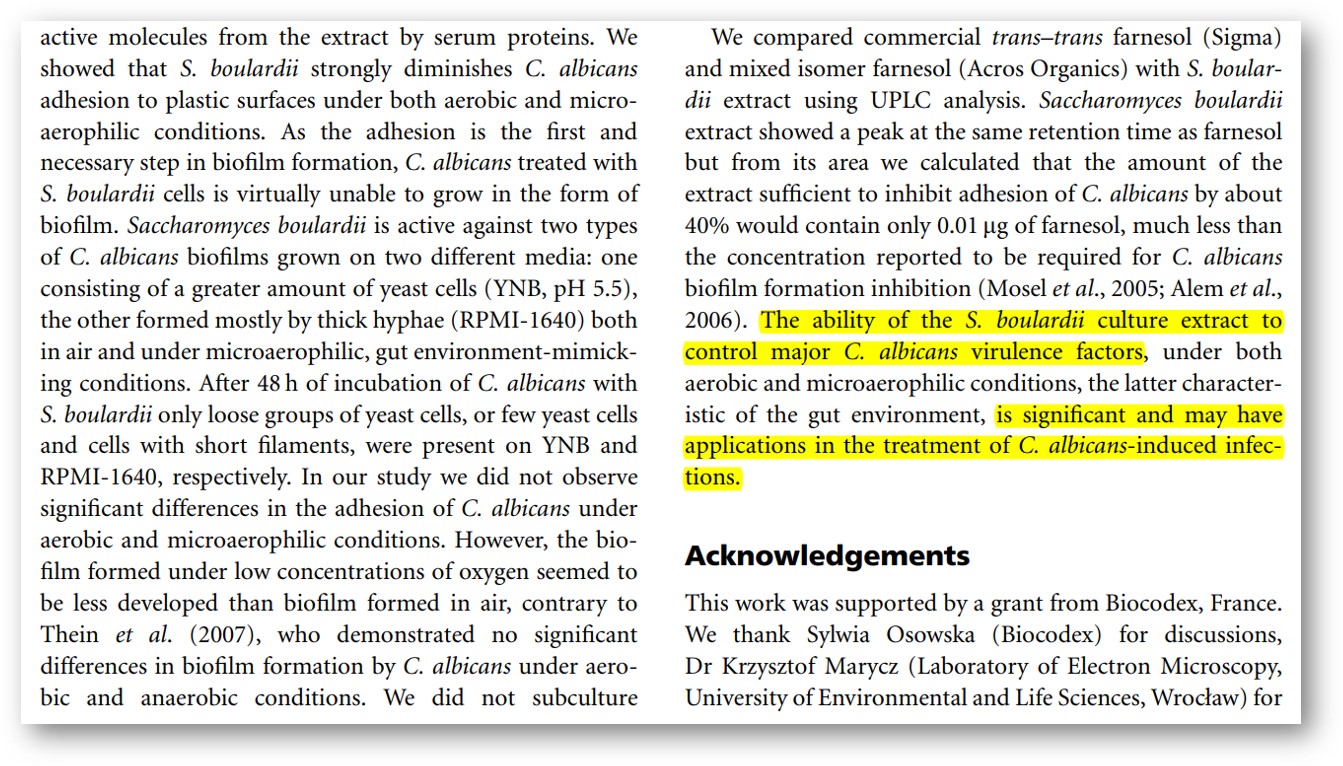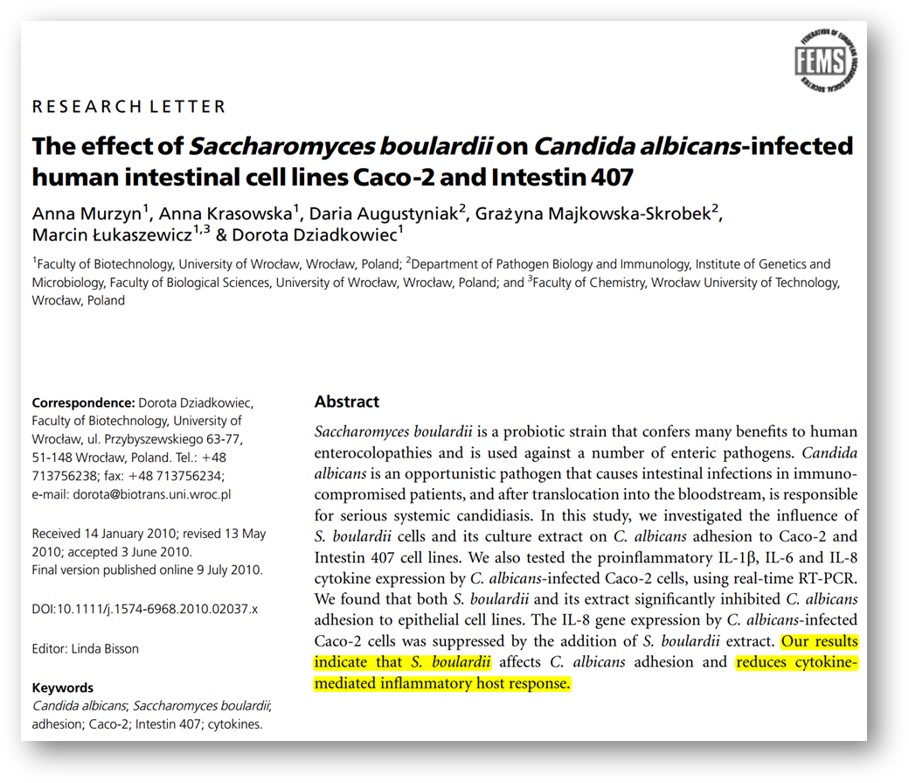Pharmacist who reads papers
If there is no probiotic effect, check if you have 'this'
1. Inhibition of the growth of harmful bacteria2. Anti-Candida3
. Anti-inflammatory

Hello. I'm a pharmacist Jinny.
I think that many people consume lactic acid bacteria basically.
However, there are quite a few people who feel uncomfortable after taking probiotics, such as feeling gas in their stomach or constipation. This is because each person has a different balance of intestinal flora.
Today, I would like to introduce the many benefits of the yeast bacterium, Saccharomyces boulardii (hereinafter referred to as boulardi), which creates an intestinal environment where lactic acid bacteria can settle well.
1. Inhibition of the growth of harmful bacteria
Unlike lactic acid bacteria, which belong to bacteria, boulardii is a yeast fungus, so it has the characteristic of surviving in the external environment such as high temperatures, stomach acid, and bile acids. That's why most of the boulardii we consume survives and reaches the intestines.
Due to these properties, studies on its complementary relationship with lactic acid bacteria are accumulating. In particular, due to the characteristics of boulardi, which survives in environments where it is difficult for beneficial bacteria to survive in the body, such as long-term intake of antibiotics, the interest of the academic community is constantly accumulating.
In March 2021, Front Public Health published a study showing that the combination of probiotics and boulardii can inhibit the growth of harmful bacteria caused by prescription antibiotics [1].

"Combined ingestion of certain strains of Lactobacillus and Bifidobacterium with Saccharomyces boulardii affects antibiotic therapy by combating the colonization of microbiota with antibiotic-resistant pathogens."
2. Anti-Candida
Boulardii, which survives in such extreme environments, is known to have an excellent effect on inhibiting the growth of harmful bacteria. As a result, hospitals may prescribe it as an antibiotic to improve side effects in patients undergoing antibiotic treatment.
However, the action of boulardii is not limited to improving intestinal health. For example, boulardii contributes to overall health through its ability to suppress Candida. Candida is the main causative agent of vaginitis, and it is a harmful bacteria that travels throughout the body through the bloodstream and causes skin diseases and acid reflux.
In 2009, FEMS Yeast Research described the anti-candidal mechanism of boulardii [2].

"The ability of Saccharomyces boulardii extract to control major Candida virulence factors is very significant and can be applied to the treatment of Candida-induced infections."
3. Anti-inflammatory
In addition, boulardii has been shown to play an important role in the body's immune system.
A paper published in 2010 in the Federation of European Microbiological Societies (FEMS) showed that Saccharomyces boulardii has anti-inflammatory properties by modulating cytokines secreted by immune cells [3].

"Our study implies that Saccharomyces boulardii reduces cytokine-mediated inflammatory host responses."
Today, we're going to talk about Bouladi. Although it is very safe and has many benefits, people with extremely low immunity due to the nature of yeast bacteria, and those who have been taking steroids or immunosuppressive drugs for a long time should be careful when taking them.
In addition, unlike lactic acid bacteria, boulardii cannot settle in the intestines and live, so it is recommended to consume it continuously. If you're worried that you haven't seen the effects of the lactic acid bacteria you've been taking, why don't you choose a lactic acid bacteria that contains boulardi?
I hope you have a healthy day in body and mind. It was Jinny.
[1] Wieërs, G., Verbelen, V., Van Den Driessche, M., Melnik, E., Vanheule, G., Marot, J. C., & Cani, P. D. (2021). Do Probiotics During In-Hospital Antibiotic Treatment Prevent Colonization of Gut Microbiota With Multi-Drug-Resistant Bacteria? A Randomized Placebo-Controlled Trial Comparing Saccharomyces to a Mixture of Lactobacillus, Bifidobacterium, and Saccharomyces. Frontiers in public health, 8, 578089.
[2] Anna Krasowska, et al. (2009), The antagonistic e¡ect of Saccharomyces boulardii on Candida albicans filamentation, adhesion and biofilm formation, FEMS Yeast Research, 9, 1312–1321.
[3] Anna Murzyn, Anna Krasowska, Daria Augustyniak, Grazyna Majkowska-Skrobek, Marcin Łukaszewicz, Dorota Dziadkowiec (2010). The effect of Saccharomyces boulardii on Candida albicans-infected human intestinal cell lines Caco-2 and Intestin 407. FEMS Microbiol Lett 310, 17–23.
[2] Anna Krasowska, et al. (2009), The antagonistic e¡ect of Saccharomyces boulardii on Candida albicans filamentation, adhesion and biofilm formation, FEMS Yeast Research, 9, 1312–1321.
[3] Anna Murzyn, Anna Krasowska, Daria Augustyniak, Grazyna Majkowska-Skrobek, Marcin Łukaszewicz, Dorota Dziadkowiec (2010). The effect of Saccharomyces boulardii on Candida albicans-infected human intestinal cell lines Caco-2 and Intestin 407. FEMS Microbiol Lett 310, 17–23.


![[Boulardi Efficacy] Special effect on irritable bowel syndrome, 3 benefits of yeast bacterium Bouladi](http://esther-mall.com/cdn/shop/articles/42.jpg?v=1734006352&width=480)

